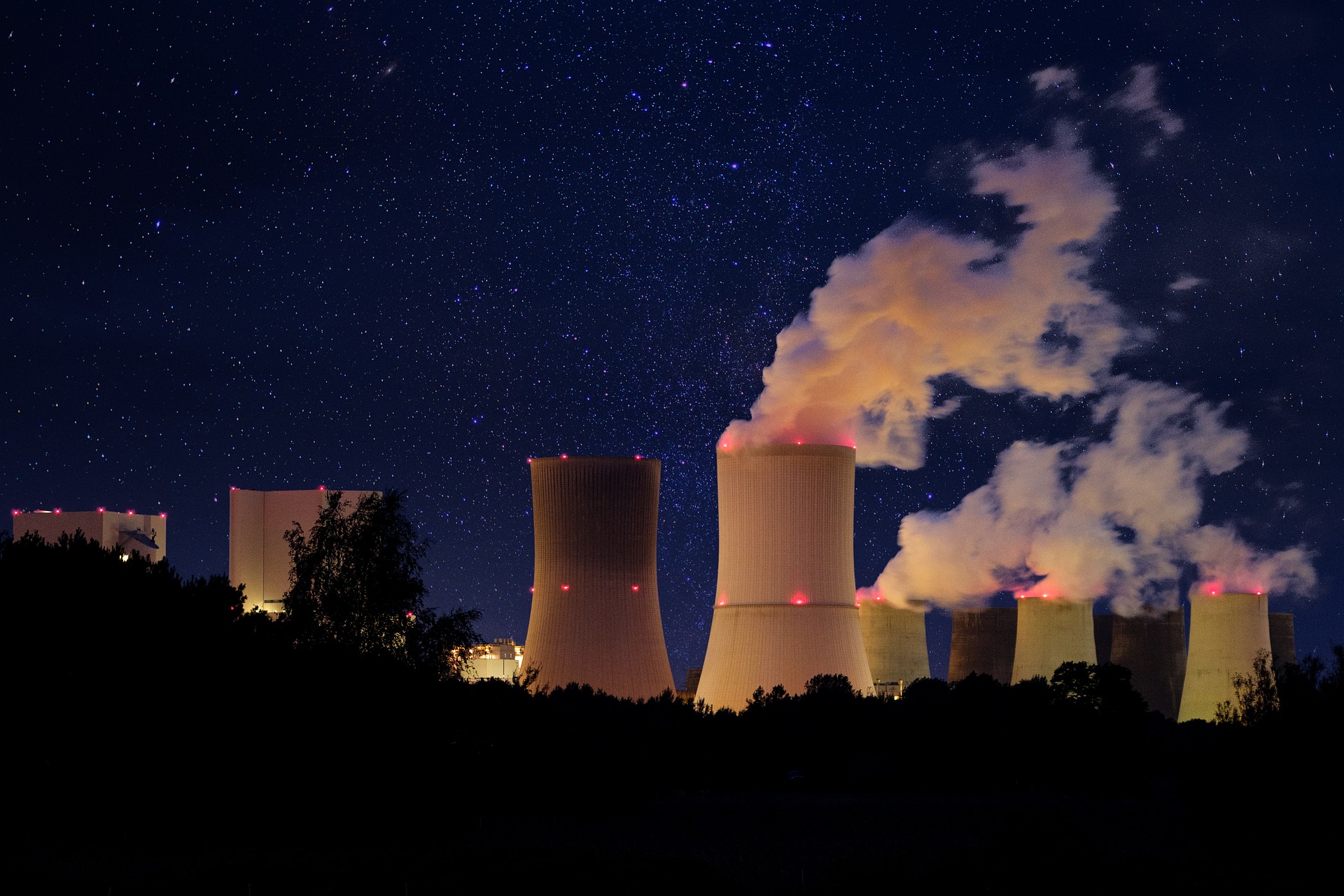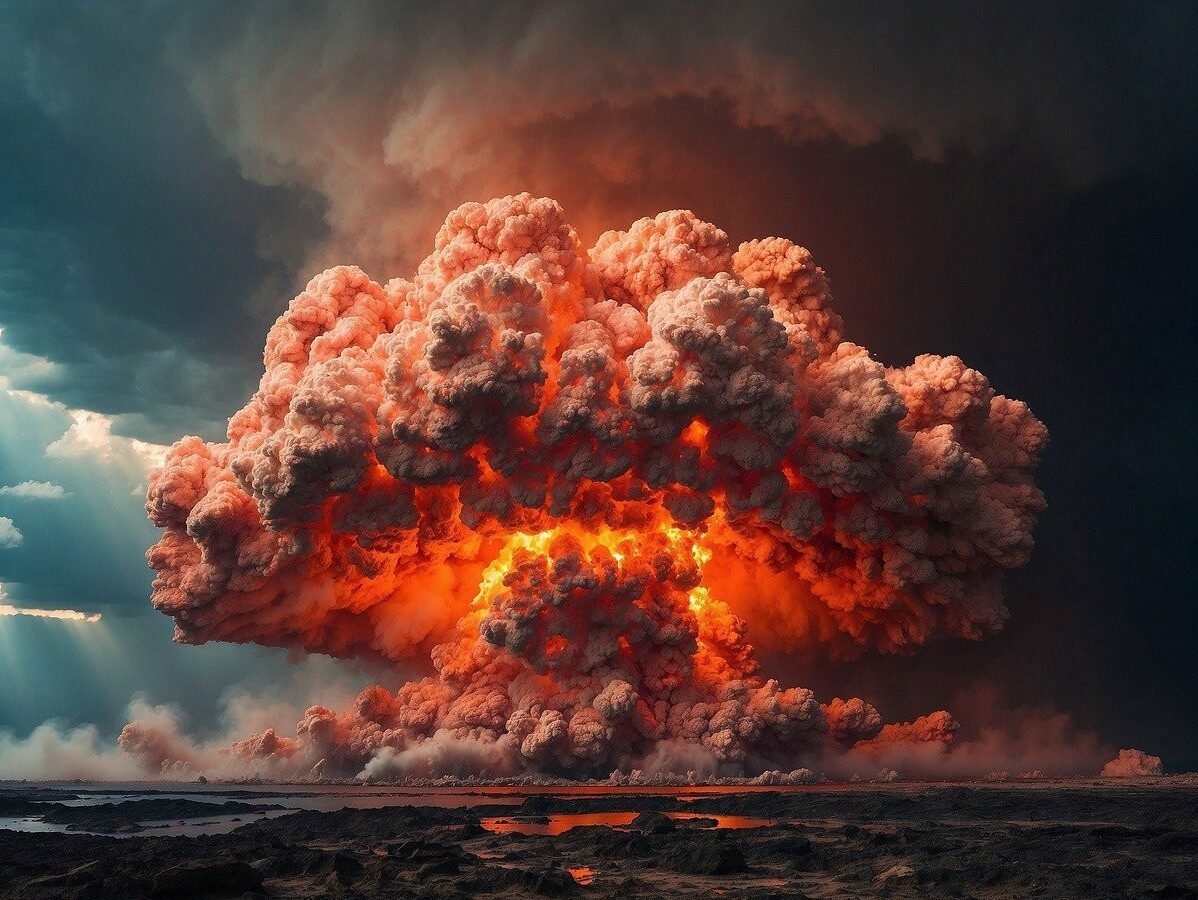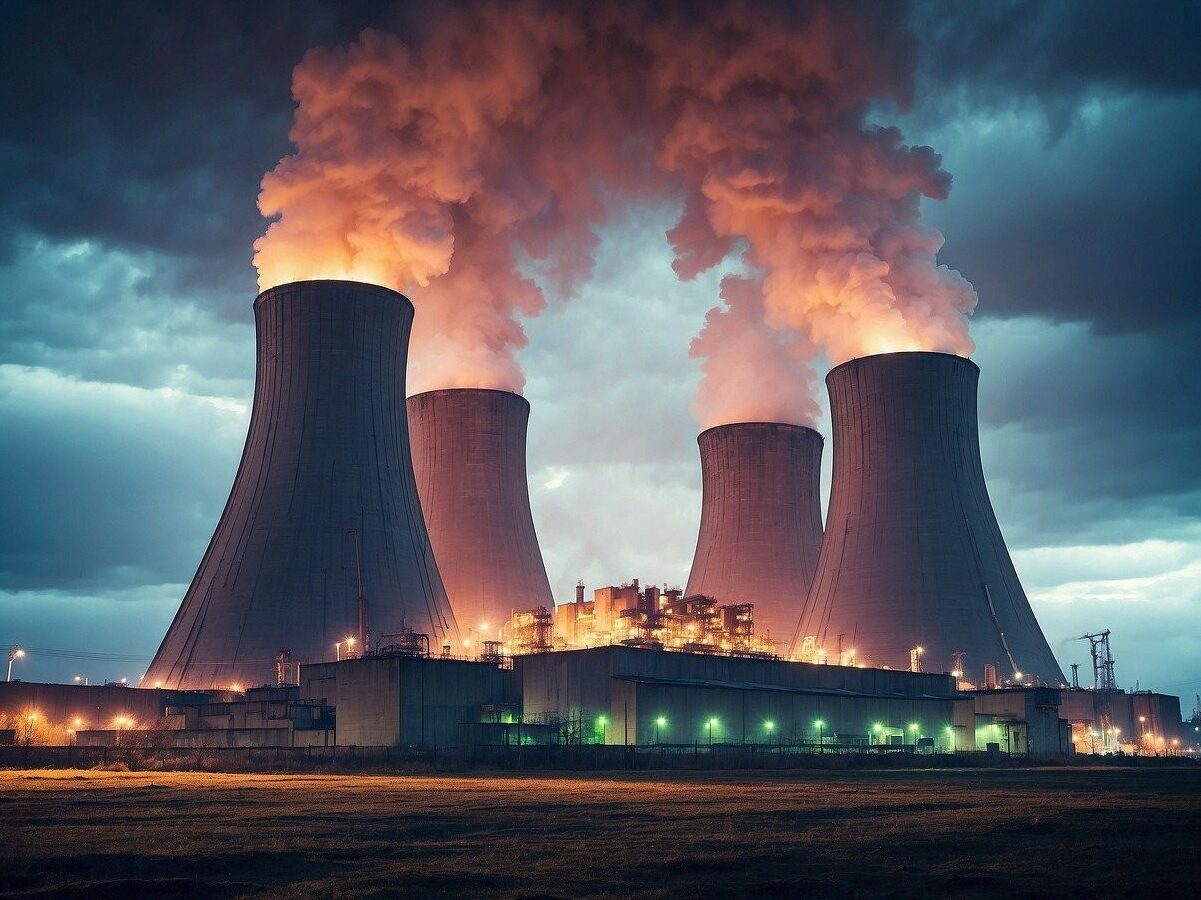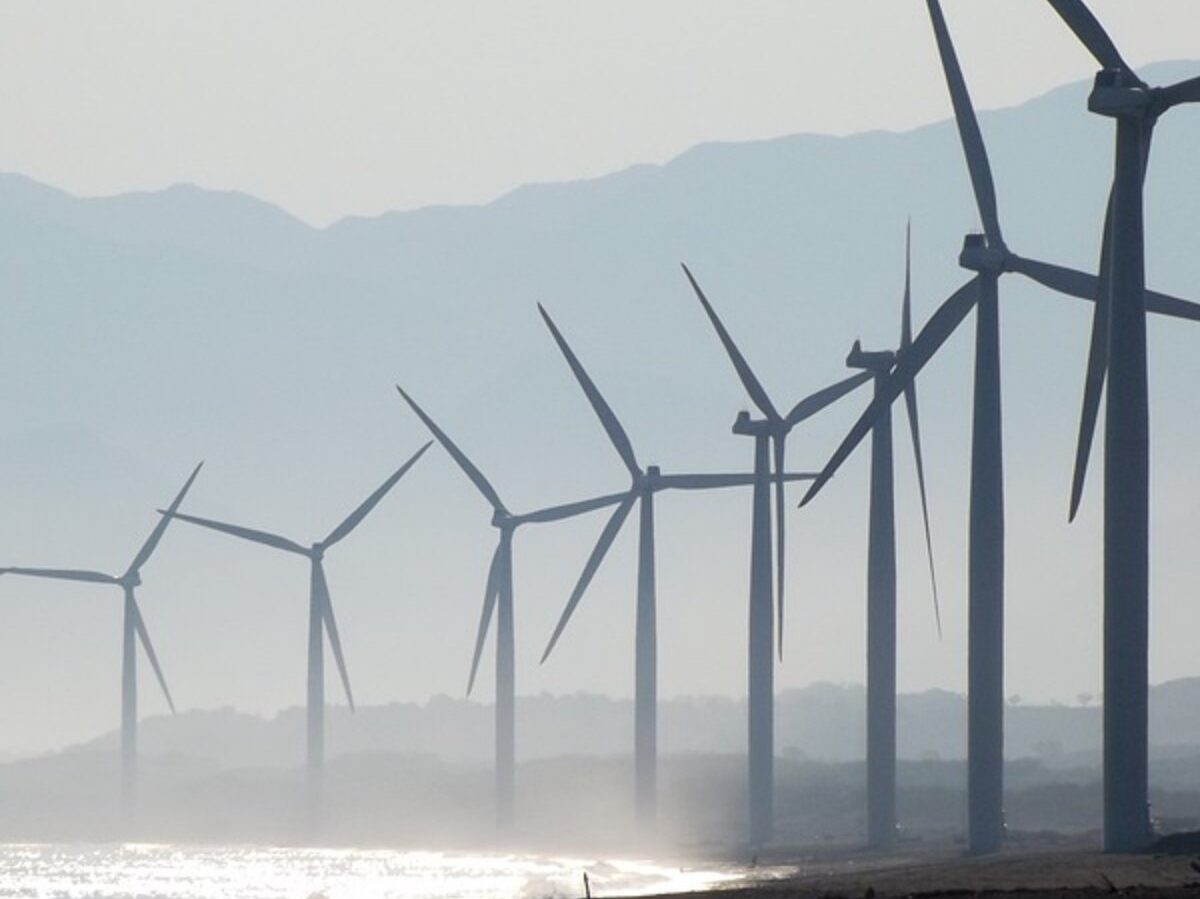3 Key Pros and Cons of Nuclear Power Unveiled
Nuclear power stands at the nexus of contention and controversy, embodying both promise and peril in equal measure. Heralded by proponents as a panacea for climate change and vilified by detractors for its potential cataclysmic consequences, nuclear power occupies a unique position within the tapestry of energy sources. In this article, we explore the pros and cons of nuclear power, unraveling its enigmatic allure and confronting its stark realities. Through a comprehensive examination of its three primary advantages and disadvantages, we seek to illuminate the complex interplay of forces shaping the global energy landscape and offer insights into the pivotal role nuclear power plays in our collective quest for sustainability and security.
4o mini
Pros of Nuclear Power: Grid Stability
Grid stability stands as one of the most formidable advantages of nuclear power, offering a steadfast foundation upon which modern energy systems can thrive. While renewable energy sources such as wind and solar dazzle with their promise of sustainability, their intermittent nature poses a formidable challenge to grid operators tasked with maintaining a delicate equilibrium between supply and demand. In stark contrast, nuclear power plants stand as unwavering sentinels of reliability, unfazed by the capricious whims of weather patterns or diurnal fluctuations. Day or night, rain or shine, nuclear reactors hum with unyielding resolve, churning out electricity with metronomic precision, and providing an indispensable backbone for grid stability, adding to the pros of nuclear power.
This constancy in electricity generation serves as a linchpin of modern civilization, ensuring a seamless flow of power to homes, businesses, and industries alike. In an era characterized by digital connectivity and technological dependence, the reliability of nuclear power assumes paramount importance, safeguarding against the specter of blackouts and grid instability. Whether powering hospitals, factories, or data centers, the pros of nuclear power stand as a stalwart guardian of continuity, fortifying the resilience of energy systems against the vagaries of nature and the volatility of markets.
Additionally, the dispatchability of nuclear power confers a strategic advantage in the realm of energy planning and grid management. Unlike renewable sources, whose output is contingent upon the fickle forces of wind and sunlight, nuclear reactors can be operated at a steady, controllable pace, allowing grid operators to fine-tune electricity supply in real-time to match demand fluctuations. This flexibility in dispatchability enhances grid stability, minimizes the need for costly backup power sources, and mitigates the risks associated with energy intermittency, ensuring a reliable and resilient energy supply chain for society at large.
The pros of nuclear power extend far beyond its capacity to generate electricity; they encompass its role as a cornerstone of grid stability and energy security in an increasingly uncertain world. While the debate over nuclear energy rages on, its indispensability in ensuring the reliability, resilience, and continuity of modern energy systems remains indisputable, cementing its status as a linchpin of the global energy landscape.
Pros of Nuclear Power: The Carbon-Free Advantage
The pros of nuclear power extend further beyond grid stability; it lies in its remarkable ability to combat climate change by virtue of its minimal carbon footprint. Unlike the ominous plumes of greenhouse gases that billow forth from the smokestacks of fossil fuel-based power plants, nuclear reactors stand as emissaries of environmental stewardship, emitting virtually no carbon dioxide or other greenhouse gases during operation. This inherent cleanliness positions nuclear power as a potent weapon in humanity’s arsenal against the existential threat of climate change, offering a pathway to a more sustainable and low-carbon energy future.
The carbon-free pros of nuclear power lie in the fundamental process of nuclear fission, wherein the splitting of atoms releases prodigious amounts of energy without the need for combustion or carbon-based fuels. This elegant alchemy of physics not only generates electricity but also circumvents the perils of air pollution and greenhouse gas emissions that plague conventional power plants, sparing the atmosphere from the deleterious effects of carbon dioxide and other pollutants.
The carbon-free pros of nuclear power confer a strategic advantage in the global quest to decarbonize energy systems and curb the ravages of climate change. As nations grapple with the imperative to transition away from carbon-intensive energy sources, nuclear energy emerges as a linchpin of sustainability, offering a reliable and proven alternative that can bridge the gap between fossil fuels and renewable energy sources. Its capacity to generate large-scale, baseload electricity without emitting greenhouse gases positions nuclear power as a vital complement to intermittent renewables like wind and solar, ensuring a dependable energy supply while reducing reliance on fossil fuels.

Pros of Nuclear Power: Energy Security
Central to the narrative of energy security is the principle of diversification, whereby the pros of nuclear power injects a dose of variability into the energy mix, diluting dependence on any single fuel source or supplier. Unlike the precarious dance of reliance on imported fossil fuels, nuclear energy draws upon indigenous uranium reserves and established supply chains, insulating nations from the vicissitudes of international politics and market fluctuations. This autonomy from external dependencies confers a strategic advantage, allowing countries with nuclear capabilities to chart their own course in the turbulent seas of global energy dynamics, free from the constraints of foreign entanglements and vulnerabilities.
The longevity and stability of nuclear power operations further bolster energy security by minimizing disruptions and uncertainties in supply chains. Unlike their fossil fuel counterparts, which demand incessant replenishment and logistics, nuclear power plants operate for extended periods without the need for frequent refueling, ensuring a continuous and reliable supply of electricity. This steadfast reliability imbues nuclear energy with a sense of resilience, capable of weathering the storms of geopolitical tensions, natural disasters, or unforeseen crises with unwavering resolve.
The pros of nuclear power extend far beyond its capacity to generate electricity; they encompass its role as a linchpin of energy security and sovereignty in an increasingly interconnected and uncertain world. As nations navigate the complexities of global energy geopolitics, the allure of nuclear energy as a bulwark against volatility and vulnerability remains undiminished, offering a beacon of resilience and self-reliance in an era defined by uncertainty and flux.
Cons of Nuclear Power: The Challenge of Radioactive Waste
Amidst the glow of its advantages, the cons of nuclear power cast a long shadow of concern, with the formidable challenge of radioactive waste looming large on the horizon. The enduring legacy of nuclear fission, which begets a Pandora’s box of radioactive byproducts that defy easy containment or disposal. From spent fuel rods to radioactive materials, these hazardous remnants of nuclear energy production present a knot of technical, logistical, and ethical dilemmas that test the limits of human ingenuity and responsibility.
The specter of radioactive waste casts a pall of uncertainty over the cons of nuclear power, raising profound questions about its long-term sustainability and the efficacy of current waste management practices. Unlike the ephemeral plumes of carbon emissions that dissipate into the atmosphere, radioactive byproducts linger in perpetuity, emitting harmful radiation and posing hazards to human health and the environment for thousands of years. Containing this radioactive genie within the proverbial bottle demands a Herculean effort of engineering and foresight, as nations grapple with the imperative to safeguard future generations from the toxic legacy of nuclear energy production.
Safe disposal and long-term storage of nuclear waste emerge as formidable challenges, fraught with technical complexities and regulatory hurdles that defy easy resolution. The search for suitable geological repositories capable of isolating radioactive materials from the biosphere for millennia stretches the bounds of scientific inquiry and societal consensus, as communities wrestle with the burden of inter-generational responsibility. Meanwhile, the cons of nuclear waste storage facilities pose risks of environmental contamination, groundwater pollution, and public health hazards, underscoring the urgency of developing robust and transparent waste management strategies that inspire confidence and trust.
Cons of Nuclear Power: Security Concerns
At the heart of these security concerns lies the sobering reality of nuclear facilities as prime targets for terrorism, sabotage, and proliferation. The sheer magnitude of devastation that could be wrought by a successful attack on a nuclear power plant or the theft of fissile material serves as a chilling reminder of the stakes at play when discussing the cons of nuclear power. The allure of nuclear facilities as high-profile symbols of technological prowess or ideological defiance renders them tantalizing targets for malicious actors seeking to sow chaos, instill fear, or advance nefarious agendas.
The specter of proliferation risks looms large on the horizon, as the global spread of nuclear technology and materials heightens the potential for misuse and abuse by rogue states, non-state actors, or clandestine networks. The dual-use nature of nuclear technologies, which can be harnessed for both peaceful and malevolent purposes, complicates the cons of nuclear power and efforts to prevent the illicit acquisition of fissile material or the clandestine development of nuclear weapons. Ensuring the security of nuclear materials and facilities demands a Herculean effort of international cooperation, intelligence sharing, and regulatory oversight to thwart the machinations of proliferators and safeguard against the catastrophic consequences of nuclear proliferation.
In response to these cons of nuclear power security concerns, nations must deploy a multifaceted arsenal of safeguards, regulations, and countermeasures to fortify the resilience of nuclear facilities and mitigate the risks of unauthorized access to nuclear materials. Robust physical security measures, stringent access controls, and comprehensive threat assessments serve as bulwarks against external threats, while enhanced cybersecurity measures guard against the insidious specter of cyberattacks and digital intrusions.
Cons of Nuclear Power: Energy Losses
Amidst the cons of nuclear power, the specter of energy losses emerges as a formidable challenge, casting a shadow over the efficiency and efficacy of nuclear energy generation. At the center of this conundrum lies the intricate dance of nuclear fission, wherein the prodigious release of heat is harnessed to power steam turbines and ultimately generate electricity. However, this process is not without its inefficiencies, as the conversion of heat into electricity inevitably entails losses along the way.
The journey from fission to electricity generation is fraught with cons of nuclear power. There are many hurdles along the nuclear energy production, each sapping a portion of the energy released during the fission process. As nuclear fuel undergoes fission reactions within the reactor core, vast quantities of heat are liberated, heating the surrounding coolant and driving the production of steam. This steam, in turn, powers turbines connected to generators, where mechanical energy is transformed into electrical energy through electromagnetic induction.
The conversion of heat into electricity is not a perfectly efficient process, as inherent losses occur at every stage of the energy conversion chain. Heat losses occur due to friction, resistance, and inefficiencies in turbine and generator components, dissipating valuable energy into the surrounding environment as waste heat. Additionally, thermal losses occur during the transmission and distribution of electricity through power lines, further diminishing the overall efficiency, adding to the cons of nuclear power generation.
While modern nuclear reactor designs strive to minimize energy losses and optimize efficiency through innovations such as advanced cooling systems, high-efficiency turbines, and enhanced thermal management techniques, these inherent inefficiencies remain an enduring challenge for the utilization of nuclear fuel resources. The quest to maximize the conversion from the cons of nuclear energy into usable electricity requires a delicate balance of engineering ingenuity, scientific innovation, and economic pragmatism, as researchers and industry stakeholders grapple with the complexities of energy conversion and utilization.
Summary
In conclusion, the pros of nuclear power lie in its capacity to bolster grid stability, generate carbon-free electricity, and enhance energy security, presenting a compelling case for its inclusion in the global energy portfolio. However, these advantages are counterbalanced by a constellation of challenges, including the formidable tasks of radioactive waste management, security risks, and energy losses inherent in nuclear power generation.
The promise of nuclear power as a steadfast pillar of energy stability must be tempered by a sober recognition of its drawbacks. The cons of nuclear power’s radioactive waste management loom large, demanding rigorous oversight, transparent regulations, and responsible stewardship to safeguard against environmental contamination and public health risks. Likewise, the security risks associated with nuclear facilities and materials necessitate robust safeguards, international cooperation, and stringent regulations to mitigate the threats posed by terrorism, sabotage, and proliferation.
Finally, the inefficiencies inherent in energy conversion processes pose challenges for maximizing the utilization of nuclear fuel resources, highlighting the imperative for ongoing innovation and optimization in nuclear power generation technologies. As we navigate the complexities of the pros and cons of nuclear power, it is imperative to adopt a holistic perspective that considers the full spectrum associated with nuclear power. Informed decision-making requires a nuanced understanding of the trade-offs involved, weighing the benefits of nuclear energy against its risks and challenges to ensure a sustainable and resilient energy future for generations to come.
If you found this post insightful, make sure to explore our other articles: “Unveiling the Benefits: The Advantages of Nuclear Power“, “Problems with Lithium Batteries in Cars: What You Need to Know“, “3 Key Benefits and Drawbacks of Wind Power Unveiled“
Learn more: National Geographic


